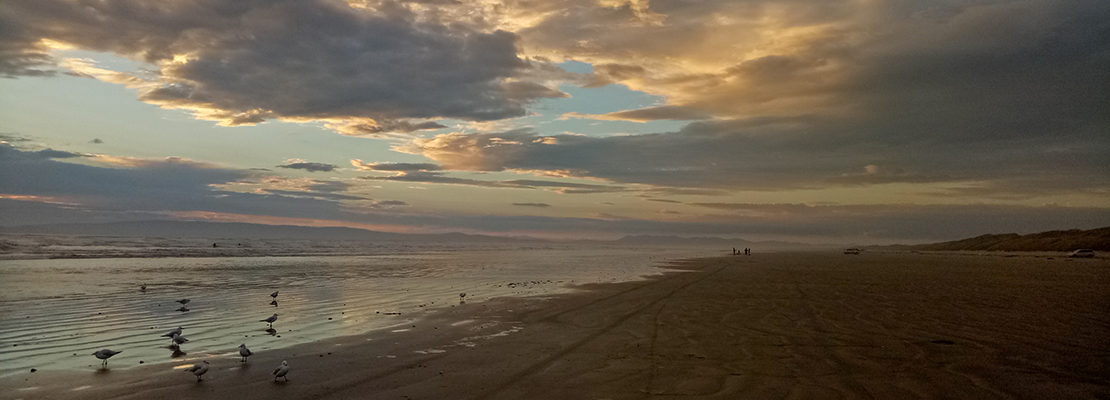Invercargill Weather and Climate
Published on 06 December 2021
3 minute read

Being at the bottom of the South Island, Invercargill might have a different climate than you’re used to depending on where you come from. Depending on the time of year, your experience with the weather might be quite different; it’s helpful to know what to expect before you arrive!
General climate
Invercargill is considered to have a temperate oceanic climate. As a temperate region, the weather doesn’t fluctuate too much throughout the year compared to some other regions. You aren’t likely to see temperatures fall below 0 °C or to get above 25 °C except for a few extreme days. The highest recorded temperature of all time was 33.8 °C and the lowest was -9.0 °C.
While the city does have seasonal changes, most of the time it tends to be cool and cloudy. In fact, Invercargill is New Zealand’s cloudiest city. But many areas get a greater amount of rainfall; it might look gray, but often the cloud cover doesn’t come with rain. However, that rain can come during any month. Even though it’s during summer, January tends to get the highest amount of rain. February has the fewest days of rain, but still has over 12 rainy days on average.
Wind is something else to expect, as the city is the 2nd windiest behind Wellington. A light breeze is common during the day with gusts more likely to appear after dark. But it’s worth bringing a windbreaker on your trip, especially during the cool months.
Summer (Dec – Feb)
With some of the coolest summers in the country, Invercargill is an excellent summertime destination if you like it warm but not hot. In January the average temperature sits at a mild 15 with highs around 20. Lows are in the teens during summer.
Summer still has a decent chance of rain, but those days tend to be in a row followed by clear, sunny days. If you’re looking for more daylight, being down South is one of the best places you can be. The longest day of the year has nearly 15 hours and 50 minutes of daylight with sunsets after 9:30 PM during Mid-December. That’s more than an hour more daylight than Auckland!
Autumn (March – May) and Spring (Sept – Nov)
Autumn and Spring are similar weather-wise in Invercargill. Weather stays mostly in the teens except at nights when it dips into the single digits. You can expect a combination of rain, sun, clouds, and wind–sometimes all a few times in a day!
Winter (June – Aug)
During Winter, Invercargill has a fair amount of wind and rain. Most of the days are cloudy, but interestingly, August actually gets the least amount of rain. January gets about 50% more rain, although August often has many cloudy days where it threatens to rain.
Winter nights can feel a bit cold and might fall below 0 occasionally. However, there is rarely snow within the city itself. In a normal year, Invercargill might get one or two days where a noticeable amount of snow sticks, but some years there isn’t any at all.
Ready for a visit?
If you’re thinking about coming to visit Invercargill, we hope you feel a little more prepared. And if you need a place to stay while you’re here, be sure to take a look at our Accommodation. We have something for every kind of traveller, from tent sites to recently-renovated ensuite rooms. Make a booking for your Invercargill trip today.